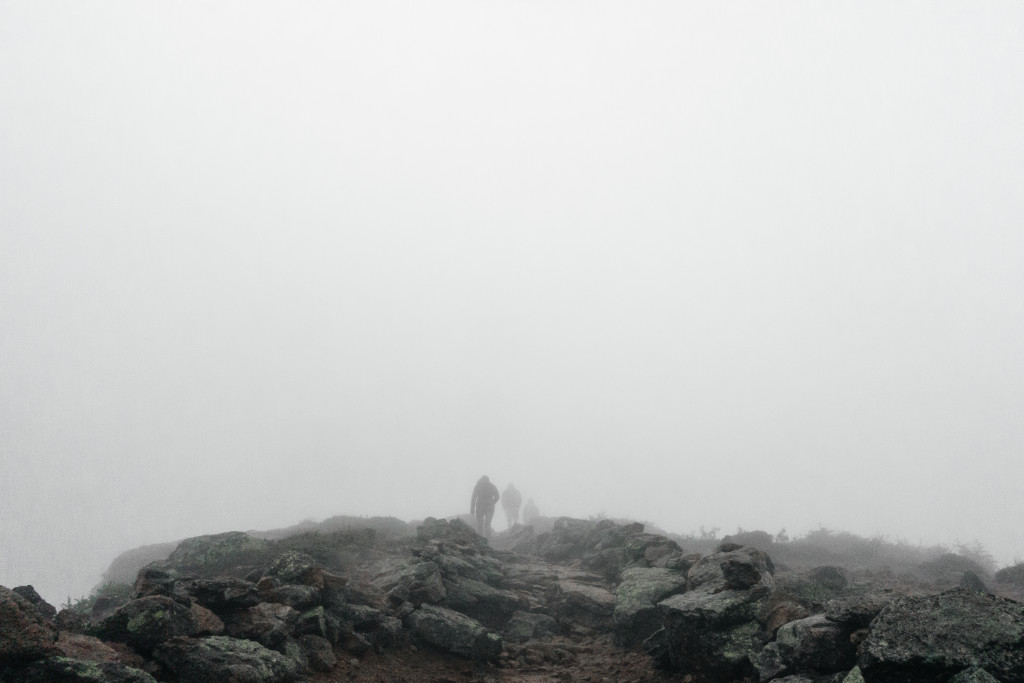Paul says that with this meal, we are proclaiming the Lord’s death until he comes. But why His death? Of course the cup/wine (or in our case, the juice) represents the blood He spilled, and the bread represents His body that was broken for us. But why does God want our eating and drinking this meal to proclaim the death of Jesus?
Today is Ascension Sunday. The day that the Church all over the globe celebrates our Lord Jesus ascending back to the Father.
Humanity’s orientation to God from the beginning, has always been an above/below orientation. That He is above and we are below. Listen to listen to believers and unbelievers speak about Him, listen to children, think of ancient pagan mythologies, think of our own Scriptures, namely our Old Testament. God is above and we are below. Consequently what pagan humans end up doing is conjuring up various ways to get up to God. To climb that mountain. To reach that higher level.
This above/below orientation isn’t bad. In fact it is biblical. It is proper. God is above and we are below. Moreover, God requires that we ascend to Him. He even showed us that upward path of righteousness which is His law. And yet, He knows that, try as we might, there is no possible way for us walk that uphill path without tumbling miserably back down to the bottom.
So what does He do? He descends to us. God sends His only Son down. He sends the Word to become flesh. Thus the bread. He sends His final, perfect Lamb to give up His blood. Thus the cup.
The Word’s flesh was rent like a curtain, making a way to the other side—to God. The Lamb’s blood was shed and covered The Door, making a way for God to passover those inside that Door. Sparing all inside from His fierce and terrible wrath.
We proclaim the Lord’s death because that is the first line of our Gospel chorus. Dietrich Bonhoeffer said, “When Christ calls a man, He bids him come and die.”
Our participation in this meal is a proclamation to everyone. To one another. To angels and to demons. And to all mankind, believer and unbeliever. Our participation in this meal is a proclamation that because Christ died, sinners have been called to come and die.
But that is just the first line of our Gospel chorus. Gospel is “good news”. What is good about being called to come and die but that those who come to Christ and die will, with Christ, be raised up? We are raised and we join the taunt of that old enemy, “O Death where is thy sting? O Grave, where is thy victory?”
Paul goes on from that taunt to say, “The sting of death is sin: and the strength of sin is the law. But thanks be to God, which gives us the victory through our Lord Jesus Christ.”
Do you see? The birth, the life, the death, the resurrection, and the ascension are distinct, historical events, but they are not detached events. These are what theologians call “the work” of Christ. “The work”, notice, is singular.
Because Christ died, we can die. Sinners can die. And that means in the Death of Christ we are presented with a way of escape. But that can’t be all. Thus the resurrection. The resurrection means, not only that the door that was once locked is unlocked, not only are we passively presented with a way of escape, we are actively carried into our escape. Through the broken body. Through the shed blood.
The resurrection means that the Door is opened to us and like a new bride, we are carried over that threshold that leads to another world—to another life. The once impossible path of righteousness has been tread completely, for us, by our Redeemer. Thus the ascension. Because the Son of God ascended, He lead the way for sons of God—for us to ascend. He undoes the fall and raises us up. Christ ascended and calls us and carries us home to God.
This is why our participation in this meal should be marked with unity and rejoicing. This is why this meal proclaims Christ’s death. So let us pray and thank God for this great grace.

